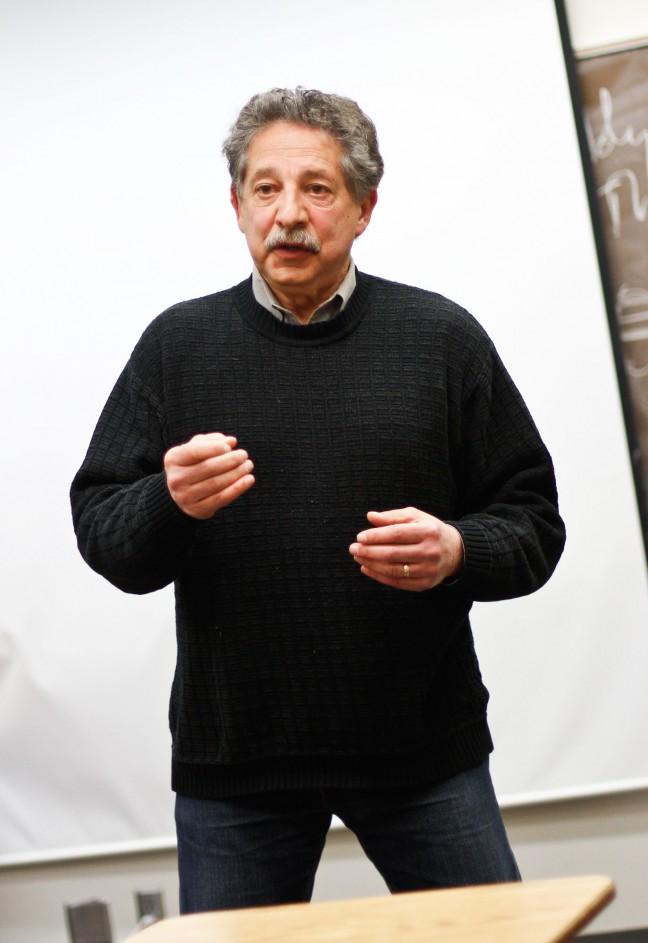The Madison mayoral candidates reached out to students Thursday evening at an event hosted by the College Democrats, who asked the long-time competitors to lay out a summary of their past accomplishments and visions for the city’s future.
Mayor Dave Cieslewicz said the standing room-only turnout for the event was encouraging and demonstrated a crucial point for the April 5 election. The last time Cieslewicz and his opponent, former Mayor Paul Soglin, faced off in 2003, Cieslewicz won by 1,200 votes, with a campus margin of 1,200 votes.
“I have been mayor for eight years, and I was largely elected on the student vote,” Cieslewicz, a University of Wisconsin graduate, said. “In a lot of ways, I feel like I owe my election to the students. I am here because I was a student.”
Cieslewicz pointed out key areas he said he has contributed to the Madison campus through issues of concern for students, including the diminished crime rate and the restructuring of Halloween on State Street into a safer Freak Fest.
In an attempt to connect with students’ social life on campus, Soglin criticized Cieslewicz’s Alcohol License Density Ordinance program, which severely limits the number of alcohol establishments in the city.
“I don’t buy for one minute that alcohol density works – there is no scientific evidence to prove that it does,” Soglin said. “If someone is going to consume alcohol, I’d rather have them in a bar than somewhere else – there are more people there who know the signs of trouble.”
Soglin said students needed to take it upon themselves to improve the culture of the campus and set standards against consuming large levels of alcohol, as is tradition with Wisconsin statewide culture. He said there are many incentives students can find within themselves and messages they can send to their friends about leveling out the attractiveness of drinking large quantities.
Student activism was also an issue Cieslewicz said would define the city in the coming years because of the recent political climate created around Gov. Scott Walker’s controversial legislation.
“The spirit of student activism has really been bought back by this governor, and unfortunately it sometimes takes a contrast like that to really kick off a movement,” Cieslewicz said. “As mayor, I’d like to give you things that you might engage in on the local level.”
Both candidates also agreed there needed to be greater community investment given the city’s growing population – an issue Cieslewicz said could be defined as the largest challenge the city will face in the coming years.
While Cieslewicz said addressing the growing population through creating strong neighborhoods would translate into a domino effect that would help solve problems like crime and poverty, Soglin said a neighborhood’s quality and success cannot be measured by the absence of markers like crime.
“[During my previous terms as mayor] I was convinced we could do something about poverty, and we did – that’s the stuff I get up each morning thinking about, and that’s why I am running for mayor,” Soglin said. “Unlike Dave, who said there’s little a mayor can do about poverty, I believe you can do things strategically and make a difference – there are things that can be done.”












